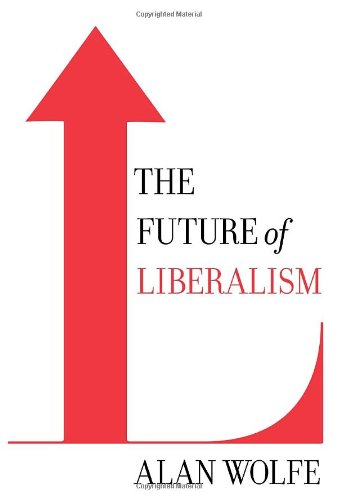
The Future of Liberalism
کتاب های مرتبط
- اطلاعات
- نقد و بررسی
- دیدگاه کاربران
نقد و بررسی

October 13, 2008
With one eye toward the Enlightenment and another toward contemporary politics, Wolfe (Does American Democracy Still Work?
) mounts a passionate defense of why liberalism—broadly defined—continues to be relevant and essential in this thorough, scholarly text. The author refers to liberalism both in its classical and modern sense, emphasizing its commitment, from its emergence to the present, to the two goals of liberty and equality. Despite the title, the book takes a primarily historical approach, surveying a multitude of liberal thinkers from John Locke to John Rawls—drawing especially heavily on the works of Jean-Jacques Rousseau, Immanuel Kant and John Stuart Mill—applying their theories to both historical and contemporary political issues. The author uses the frame of liberalism to examine terrorism, globalization and the politics of religion. Wolfe ruminates on conservatism's hand in the Hurricane Katrina debacle and, in his musings on globalization, focuses on how liberalism prescribes a philosophical commitment to global welfare rather than parochial concerns or national protectionism. More a work of political theory than a policy text, this book will strongly appeal to readers interested in the tradition of Western liberal thought.

February 15, 2009
Wolfe (political science, Boston Univ.; "The Transformation of American Religion"), a political sociologist of great distinction, clarity, and prolificacy, continues his powerful contributions to the understanding of contemporary conundrums with this stock taking of the state of the "L-word." Written before Barack Obama's win in the general election, free of campaign cant, this is a serious book for serious readers. Wolfe writesusually accessibly, always penetratinglyas an intellectual committed to a set of ideas and social mores that have been tested and reformulated since the Enlightenment. In Wolfe's account, liberalism is informed by, but in permanent tension with, nationalism and romanticism. He is respectful of the conservative tradition, if not of specific right-wing pundits, and points out current inconsistencies he sees in liberal orthodoxy. He also takes exception to extreme claims made on behalf of sociobiology and against religion. Wolfe suggests the two greatest threats to the core liberal value of human freedom are untrammeled globalization and violent jihadismthreats, he argues, only liberalism can reform or tame. Recommended for academic and pubic libraries.Scott H. Silverman, Bryn Mawr Coll. Lib., PA
Copyright 2009 Library Journal, LLC Used with permission.

February 1, 2009
In Return to Greatness (2005), political-science scholar Wolfe criticized his fellow liberals for losing their vision for the U.S., substituting impulses toward multiculturalism, isolationism, and identity politics instead of a coherent agenda intended to unify the country behind common ideals. His latest book aims to remedy this lack of vision and reinvigorate liberals by presenting a philosophy of liberalism that advocates a decisive and confident return to first principles (namely, those articulated by the classical liberals of the Enlightenment), calibrated to address the crises of the twenty-first century. Drawing on Locke, Mill, Kant, and a handful of contemporary commentators, Wolfe argues that liberalism represents a commitment to cultivate equality, individual autonomy, and openness; having arisen alongside the first stirrings of modern society, liberalism is the political philosophy that is morally and pragmatically best suited for todays irreversibly modern world. Discussing Rousseau and the persistent strains of Romanticism, however, Wolfe observes that liberalism may be challenged not only by conservatives but by the impulse, prevalent on the Right and the Left, to reduce human agency to acts of nature. Erudite and insightful.(Reprinted with permission of Booklist, copyright 2009, American Library Association.)

























دیدگاه کاربران